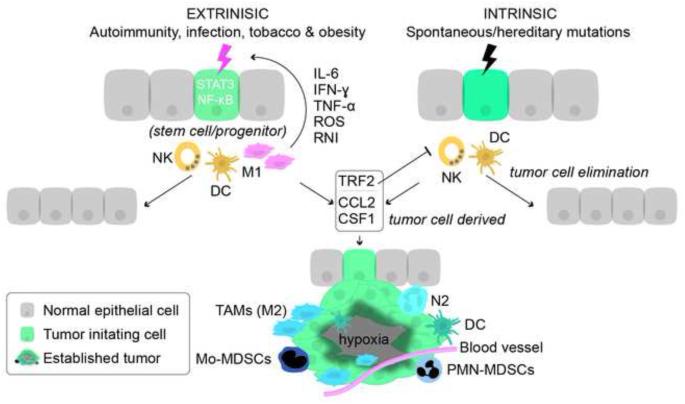Figure 1. Innate immune cells in tumor initiation and progression.
Tumor initiation can either be induced by chronic inflammation caused by extrinsic factors such as infection, autoimmunity, tobacco and obesity or by intrinsic factors e.g. spontaneous or hereditary mutations. The extrinsic factors are dependent on innate immune cells to initiate tumor formation (compared to intrinsic tumor formation) and emerging data indicate that cancer initiated by chronic inflammation might originate from tissue stem cell/progenitors. Pro-inflammatory M1 macrophages and to some extent DCs are responsible for creating a mutagenic microenvironment. Pro-inflammatory mediators (IL-6, IFN-γ, TNF-α, ROS and RNI) activate STAT3 and NF-κB and induce genetic instability. Premalignant cells acquire traits, such as upregulation of TRF2 that inhibit tumoricidal NK cells, and upregulation of CSF1/M-CSF and CCL2 that recruit immature myeloid cells from the bone marrow and convert them into pro-tumor myeloid cells, i.e., TAMs, N2, DCs, PMN-MDSCs and Mo-MDSCs that are pro-angiogenic and promote development of malignancy.
Abbreviations: DC, dendritic cells; IL-6, interleukin-6; TNF-α, tumor necrosis factor-α; IFN-γ, interferon-γ; TRF2, telomeric repeat-binding factor 2, ROS, reactive oxygen species, RNI, reactive nitrogen intermediates, NK, natural killer cells; CSF1/M-CSF, macrophage colony stimulating factor 1; CCL2, chemokine (C-C motif) ligand 2; TAMs, tumor-associated macrophages, N2, pro-tumor neutrophil; PMN-MDSCs, tumor-associated T cell-suppressive neutrophils; Mo-MDSCs, monocyte/macrophages.

